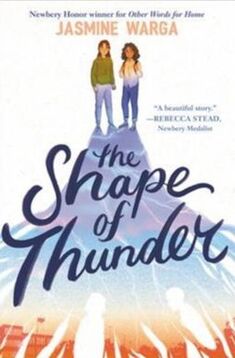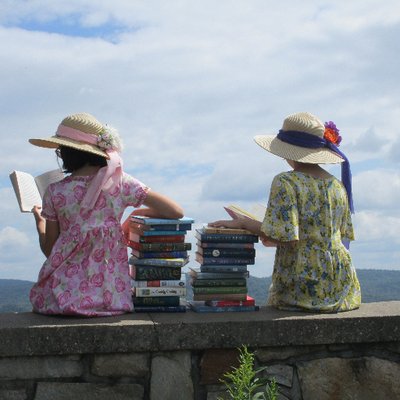
Former best friends Cora Hamed and Quinn McCauley haven't talked in almost a year. That's how long it has been since Cora's older sister Mabel was killed in a school shooting, a tragedy made even worse by the fact that the shooter was Quinn's older brother.
What sort of traitorous sister would talk to Quinn after that? Cora ignores Quinn completely, throwing herself into school and Quiz Bowl practice--and trying not to think about Mabel's lip gloss and stuffed animals in their shared bedroom which she can't bring herself to pack up.
No one at school talks to Quinn, and no one in Quinn's family talks about what Parker did. Her mom blames her dad for owning guns in the first place, her dad blames the terrible things Parker read online, and secretly, Quinn is certain that it was her all own fault for not preventing the shooting when she had the chance. It's been almost a year since it happened, and when she thinks of her brother, Quinn is still torn between horror and fury and treacherous threads of love for the boy Parker used to be.
But soon, none of that will matter. Because Quinn has a plan to fix everything. The only problem is that she needs help from someone else to execute it, someone she trusts who is smart and imaginative and would understand just how important this is. And there's only one person who fits that description.
Cora is a very smart, very logical person who is very sure that she will never be friends with Quinn ever again, and at first she ignores Quinn's attempts to reach out. Besides--time travel? Changing the past to fix the future? It seems impossible--but maybe only the impossible can make things right. And working with Quinn on her plan isn't betraying Mabel, since they're trying to save her, right?
As Cora and Quinn brainstorm, research, and experiment, flickers of their old friendship begin to resurface, and their growing closeness seems like less and less of a problem--after all, soon enough they'll have fixed the past, and there'll be no reason for them not be be best friends anymore. But wormholes are considerably harder to come by than they expected, as is overcoming the grief, anger, and blame which is still between them.
Time travel itself might not fix everything. But trying to figure it out might just be the key to finally beginning to heal.
The Shape of Thunder both exceeded my high expectations, and was completely different from what I was expecting, and its exploration of loss, friendship, grief, and healing is original, timely, and ultimately hopeful. The plot is relatively straightforward, yet the story has striking depth, and is written with compassion, eloquence, and a laudable willingness to explore complexity. I really loved Cora and Quinn, each of whom are flawed and struggling, but also full of love, loyalty, and determination, and are distinct both from each other and from the protagonists in the many other books I've read. The supporting characters are also excellent, and Mabel and Parker (or rather, the other characters' memories of them) are particularly skillfully portrayed and interestingly layered. The Shape of Thunder is an excellent selection for book groups or discussion, and the Author's Note includes resources for how to get involved in ending gun violence. A heartbreaking, beautiful story about friendship, tragedy, the love which can tear us apart, and the love which puts us back together again, I would highly recommend The Shape of Thunder to readers ages ten and up.
Note: Jasmine Warga is also the author of Other Words for Home.



 RSS Feed
RSS Feed
